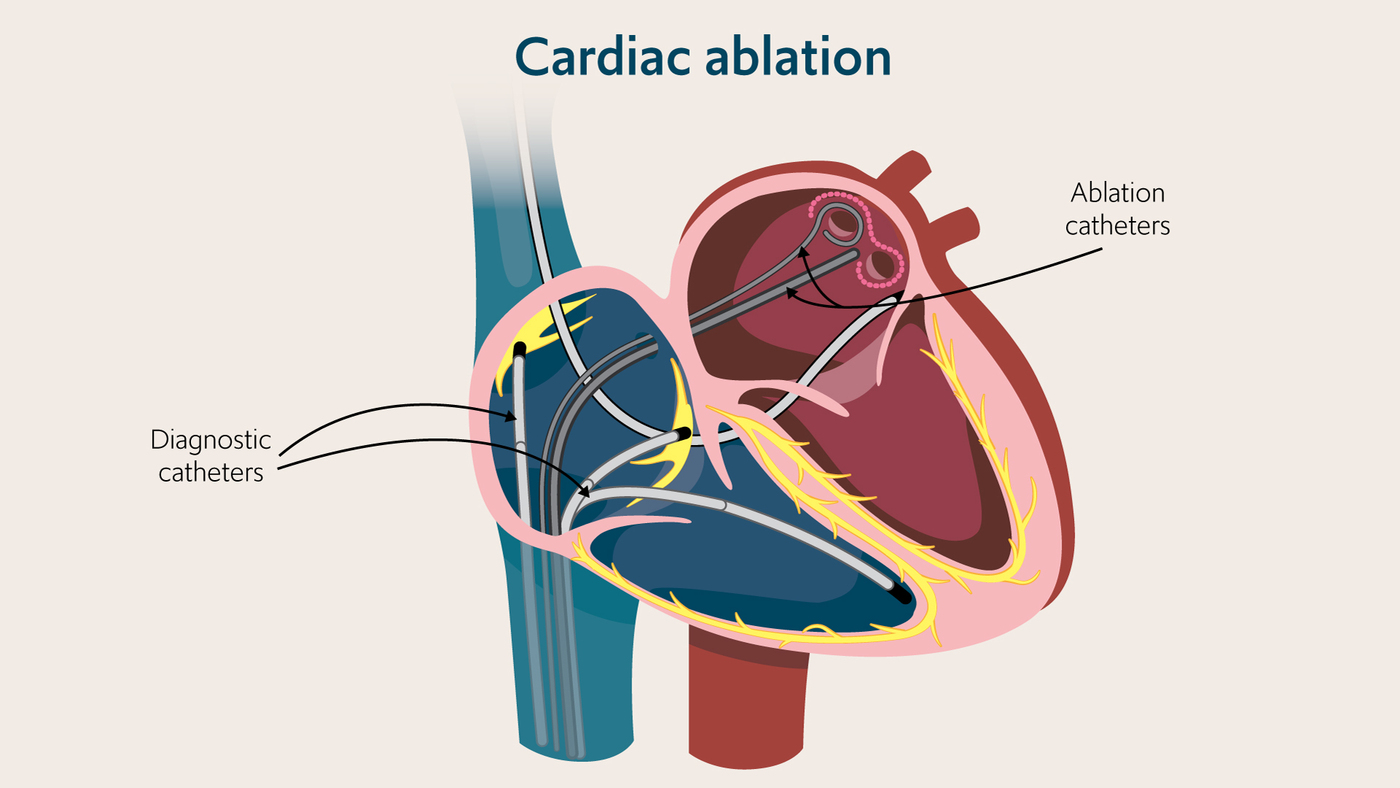What are heart palpitations?
Heart palpitations are when the heartbeat becomes more noticeable. You may sense that your heart is fluttering, pounding, beating fast, or beating irregularly – this can feel uncomfortable or strange. Heart palpitations may be felt in the chest and neck .
While they are typically harmless, sometimes heart palpitations could be a symptom of a more serious heart condition that requires treatment, such as an irregular heartbeat (arrhythmia).
Cardiac arrhythmias may cause:
- a heartbeat that is unusually slow (bradycardia)
- a very fast heartbeat (tachycardia)
- a heartbeat that differs from a typical heart rhythm
- a combination of all three.
Symptoms of heart palpitations
The symptoms of heart palpitations can include:
- your heart beating too fast
- your heart pounding
- flip-flopping, which is when your heart beats irregularly
- your heart skipping beats
If you experience more serious symptoms – such as losing consciousness, fainting, shortness of breath or chest pain – you should get medical help immediately. Heart palpitations can last for just a few seconds or minutes, or for longer. They can occur when you are exercising or resting.
Some people are more prone to having heart palpitations at night, this could be the way you lie down in bed (people who sleep on their sides may be more likely to have heart palpitations due to the build-up of pressure in the body). It is also possible that you are more aware of palpitations when you go to bed, because of less noise and fewer distractions in that environment.
Heart palpitations at night can come in short bursts and are generally harmless. But if you experience more serious symptoms such as chest pain or shortness of breath, you should seek immediate medical assistance.
What causes heart palpitations?
There are various causes of heart palpitations. The cause could be a lifestyle factor, a mental health condition, or an underlying medical condition. Potential causes not related to the heart include:
- intense physical exercise
- stress, anxiety, depression or fear
- medical conditions, such as:
- low blood sugar level (hypoglycaemia)
- thyroid disease
- low blood pressure (hypotension)
- anaemia
- dehydration
- fever
- caffeine
- alcohol
- nicotine
- illegal recreational drugs
- hormonal changes (such as during pregnancy, menstruation or before menopause)
- unusual electrolyte levels, an imbalance of electrolytes such as:
- potassium
- calcium
- magnesium
- nutritional and herbal supplements, including supplements for weight loss, sexual enhancement and athletic performance
When to worry about heart palpitations
Heart palpitations can be triggered by several causes, from stress and lifestyle factors to medication and supplements. However, sometimes they can be a symptom of a much larger issue, such as:
- heart arrhythmia
- cardiomyopathy
- heart attack
- heart valve disease
- heart failure
- congenital heart conditions
You should contact your doctor if you experience heart palpitations frequently or longer than a few seconds. Call an ambulance if your or somebody else’s heart palpitations are accompanied by:
- chest or upper body pain
- loss of consciousness
- shortness of breath
- dizziness
- abnormal sweating
- nausea
These could be warning signs of a heart attack or another serious heart condition that necessitates immediate medical attention.
Heart palpitations diagnosis
If your heart palpitations are becoming frequent and they are accompanied by other symptoms, or you are concerned, you should seek medical help. During a heart palpitation diagnosis, a cardiologist will usually perform a physical examination, ask a few questions relating to your medical history and use a stethoscope to listen to your heart. They may carry out other heart tests including:
- Electrocardiogram (ECG): a quick and simple test that measures the heart’s electrical activity. It uses electrodes that are placed on the upper body, and sometimes limbs
- Echocardiogram: a non-invasive test which creates pictures of the heart using sound waves
- Holter monitor: a portable ECG device that you wear to record your heart rate and rhythm throughout the day. A Holter monitor can detect heart palpitations that a normal ECG test can’t pick up
- Event recorder: if your heart palpitations are sporadic, you might be advised to wear an event recorder which you press when irregular heart rhythms occur
Heart palpitations treatment
In many cases, heart palpitations won’t need treatment. Depending on the severity, there are several treatments available to help manage the symptoms of heart palpitations and stop them from occurring in the future.
Simple lifestyle changes may help to treat heart palpitations. When they are caused by a serious heart condition, medication or surgery may be required.
How to reduce heart palpitations
There are several lifestyle changes you can make to help manage symptoms and prevent future heart palpitations. These steps include:
- managing stress through techniques such as breathing exercises and meditation, and managing your workload effectively
- exercising
- receiving therapy to reduce anxiety and panic attacks
- cutting out coffee and other stimulants such as energy drinks
- lowering alcohol intake
- stopping smoking
- avoiding illegal drugs
Medication for heart palpitations
You may be prescribed medication to help reduce heart palpitations and keep your heart rate down. Medication for heart palpitations includes:
- beta-blockers (such as propranolol, metoprolol and bisoprolol) which treats palpitations
- calcium channel blockers, also called calcium antagonists, can help to control an irregular heartbeat
Cardiac ablation

Cardiac ablation is a specialist procedure to treat arrhythmias.
In circumstances where heart palpitations can be heart-related (e.g. if you have an arrhythmia) rather than anxiety-induced, then you may be offered surgery.
Cardiac ablation can be an effective surgical treatment for an irregular heart rhythm. Cardiac ablation utilises hot or cold energy to make small scars in the heart tissue which can block abnormal electrical signals and restore an even heartbeat.
The procedure is done using catheters; thin tubes that are inserted via the veins or arteries through to the heart. A contrast agent may be used so that the blood vessels can be seen more clearly on an X-ray. Using sensors on the catheter to record the heart’s electricity, the area that is causing the irregular heartbeat can be identified. Hot or cold energy can then be used to apply the ablation.
We have some of the world’s leading specialists in heart palpitations and cardiac arrhythmias. Get in touch with our customer services team today to book an appointment.
Locations
Discover our expert team of cardiologists
Meet our team of cardiologists specialising in the diagnosis and treatment of heart palpitations.
